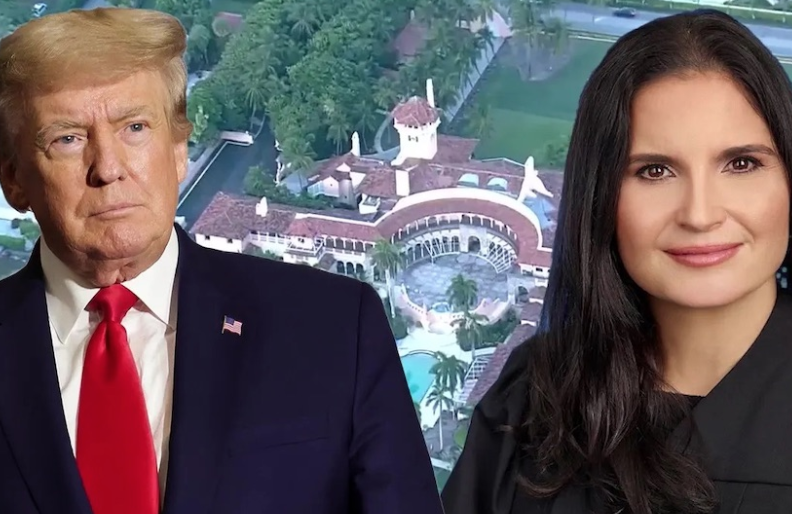Judge Cannon Sends ‘Ominous’ Message To Jack Smith – It’s Great News For Trump

In a striking development within the political legal arena, District Judge Aileen Cannon of Southern Florida has issued a formidable rebuke to special counsel Jack Smith. Earlier in the week, Smith made headlines by assertively threatening to contest Cannon's decision related to jury instructions, an action that has incited a whirlwind of reactions among liberal commentators.
Notably, Glenn Kirschner, a progressive and former federal prosecutor, has interpreted Judge Cannon's response as a dire warning to Smith, signaling her potential rejection of his plea for a swift resolution on the disputed jury instructions concerning the Presidential Records Act. These instructions were at the heart of a legal debate initiated by former President Donald Trump's defense team.
Trump's lawyers have consistently argued that all documents held during his presidency, including those pertaining to national security, were legally declassified. Contrarily, Smith has labeled this claim as unfounded and fabricated, threatening to appeal Cannon's ruling if it allows the jury to deliberate based on these instructions.
"Remember, a couple of days ago Jack Smith filed a scorched-earth filing in this case saying, Wait a minute, Judge Cannon, you’re proposing to give two jury instructions and those jury instructions say the Presidential Records Act means that Donald Trump is essentially not guilty of the charges," Kirschner pointed out during an appearance on Brian Tyler Cohen's YouTube show The Legal Breakdown, as reported by Newsweek.
Kirschner further explained that Smith has contested the accuracy of this interpretation, suggesting that such instructions could lead to a predetermined acquittal, a situation he finds unacceptable, especially after the trial's commencement and the jury's selection.
Judge Cannon, in her rebuttal, emphasized her refusal to adhere to Smith's request for the premature finalization of jury instructions, deeming such a demand as both unprecedented and unreasonable.
She underscored her approach to the jury instructions as a sincere effort to understand the diverging viewpoints of the involved parties, within the trial's future context.
Kirschner read into Cannon's stance as an indication of her willingness to postpone her decision on the instructions until after the presentation of evidence and defenses, thereby preserving the possibility of adopting a controversial interpretation of the Presidential Records Act that could result in Trump's acquittal—an action that would be immune to appeal by Smith.
Kirschner labeled this scenario as an extreme misuse of judicial discretion, highlighting the contentious nature of the case.
Amidst this legal tussle, President Trump awaits a critical decision from the U.S. Supreme Court on his claim of immunity from prosecution due to his former office, a claim Smith seeks to counteract in an upcoming hearing on April 25.
Legal analysts have speculated that the process of appealing Trump's initial immunity denial could extend up to 90 days, potentially postponing the commencement of federal trials to the summer. Additional delays could arise from Smith's insistence on reviewing millions of pages of documents, further complicating the timeline of the case.